Cinebench R15
We used the ‘CPU’ test built into Cinebench R15 to measure the effect that system memory has on computational performance.
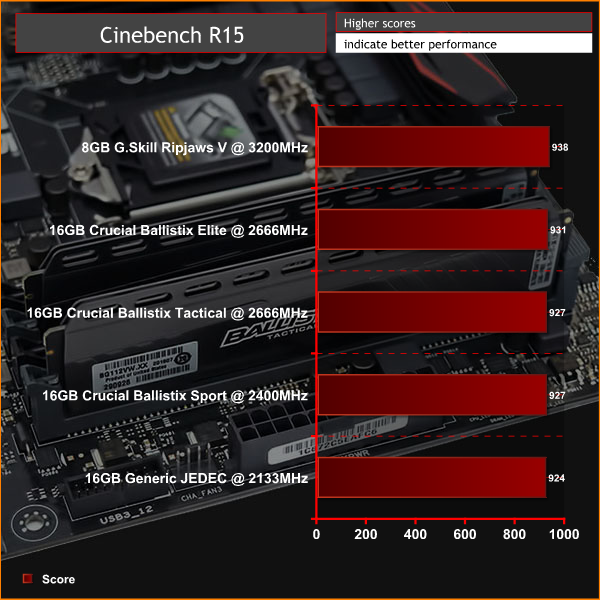
Handbrake
We measured the average frame rate achieved for a task of transcoding a 1.2GB AVI file to MP4 using an Android Tablet preset.
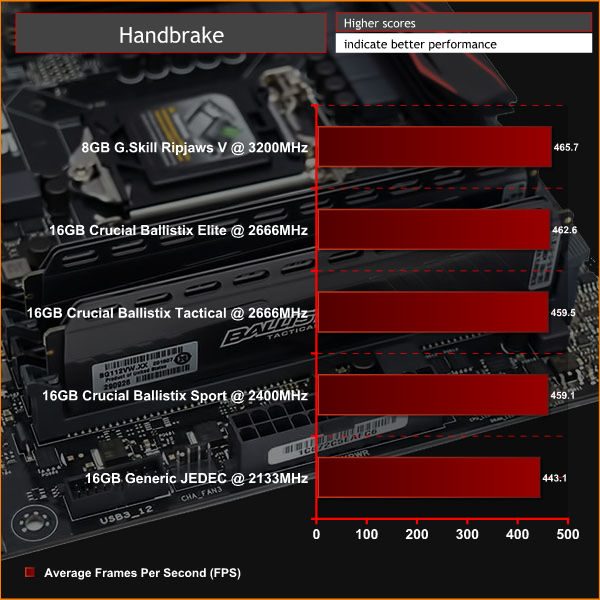
WPrime
We ran the 32 million Pi calculation to observe any changes in mathematical computation performance caused by different system memory.
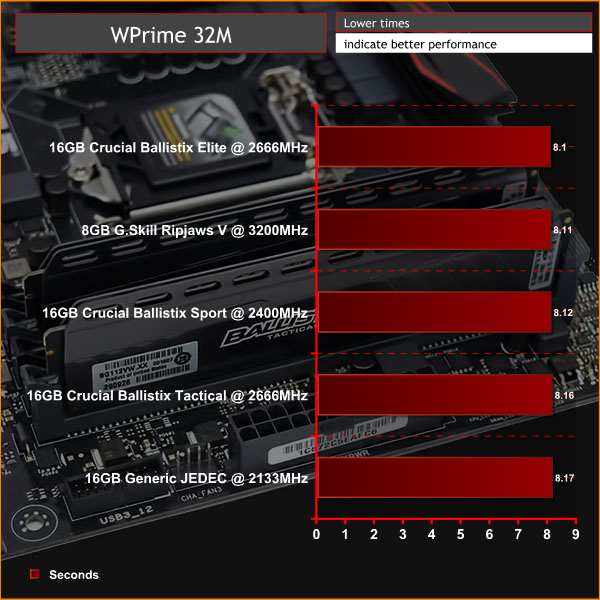
3DMark
The Firestrike test was used with a focus on the Physics score to record how faster memory can impact gaming performance.
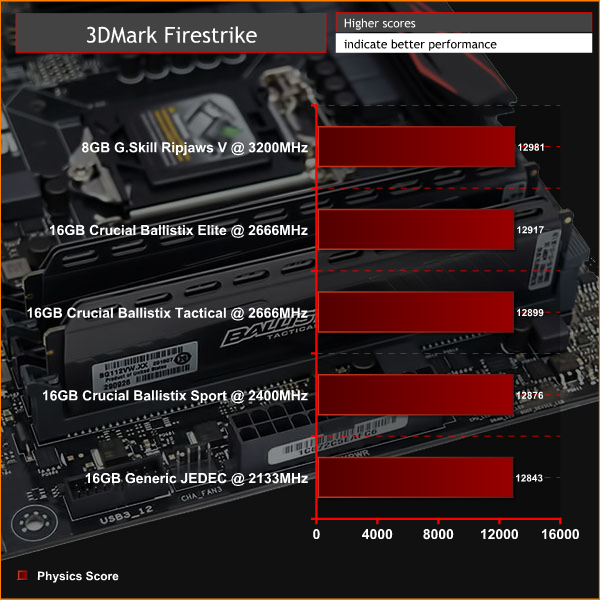
Cinebench, Handbrake and 3DMark all performed better on Crucial's memory kits than standard 2133MHz DDR4 memory but the results were a mixed bag. Handbrake scaled the best while both 3DMark and Cinebench were so close that the differences are negligible and could be called margin of error.
Only by adding in the faster 3,200MHz G.Skill kit were we able to demonstrate a notable difference across these benchmarks against DDR4-2133. WPrime yielded seemingly random results suggesting that memory frequency has little impact on mathematical CPU computation.
This general trend does yield some inherent advantages for prospective buyers though. Users can be more concerned with getting a memory kit of the right capacity, aesthetics and price point, leaving frequency to be an afterthought, and it will be of virtually no detriment to overall system performance levels. As such Crucial's DDR4 2400 and 2666 both seem to be adept in keeping up with all of today's memory bandwidth requirements.
 KitGuru KitGuru.net – Tech News | Hardware News | Hardware Reviews | IOS | Mobile | Gaming | Graphics Cards
KitGuru KitGuru.net – Tech News | Hardware News | Hardware Reviews | IOS | Mobile | Gaming | Graphics Cards


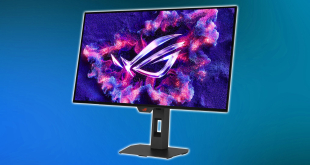
Cpuz displays too little information from SPD. I would recommend using Thaiphoon Burner instead of cpuz. It’s a very neat and helpful utility.